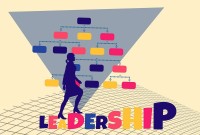- Home
- Business Processes
- Industry Knowledge
- Aerospace Industry
- Automotive Industry
- Banking Domain
- BFSI Industry
- Consumer/ FMCG Industry
- Chemicals Industry
- Engineering & Construction
- Energy Industry
- Education Domain
- Finance Domain
- Hospitality Domain
- Healthcare Industry
- Insurance Domain
- Retail Industry
- Travel and Tourism Domain
- Telecom Industry
- Leadership Skills
- eLearning
- Home
- Leadership
- Leadership Styles
- Democratic Leadership
Democratic Leadership
Participative leadership is one of the most effective styles and creates higher productivity, better contributions from group members, and increased group morale. The democratic leadership style consists of the leader sharing the decision-making abilities with group members by promoting the interests of the group members. Learn more about this leadership style and situations when it is effective.
What is Democratic Leadership Style?
A democratic leader understands that there is no organization without its people. He looks at his and others' positions in terms of responsibilities rather than status and often consults in decision-making. The democratic style encompasses the notion that everyone, by virtue of their human status, should play a part in the group's decisions. Democratic leadership invites the participation of staff members and others, not only in decision-making but also in shaping the organization's vision.
While a democratic leader solicits, values, and takes into account others' opinions, however, the ultimate responsibility for decision-making still lies reserved with the leader. Final decisions about what to do with the ideas from team members still remain in the hands of the leader. Such a leader believes that although the organization's success depends on collaboration and cooperation from all team members, accountability for the consequences of the decisions made still lies on the leader alone.
Some models of democratic leadership might put responsibility in the hands of a small group like a management team or executive committee.
Characteristics of Democratic Leadership:
- This style of leadership encompasses discussion, debate, and sharing of ideas and encouragement of people to feel good about their involvement. Democratic leadership can lead to better ideas and more creative solutions to problems because group members are encouraged to share their thoughts and ideas.
- It allows everyone to express opinions about how things should be done, and where the organization should go. By bringing in everyone's ideas, it enriches the organization's possibilities
- The democratic style of leadership still requires guidance and control by a specific leader.
- The democratic style demands the leader to make decisions on who should be called upon within the group and who is given the right to participate in, make, and vote on decisions.
Situations where Effective:
- Democratic leadership works best in situations where group members are skilled and eager to share their knowledge.
- Encourages friendships and good relationships throughout the organization
- Helps people feel valued when their opinions are solicited, and even more so if those opinions are incorporated into a final decision or policy
- Allow the team to provide input before making a decision, although the degree of input can vary from leader to leader.
- Encourage creativity and level of engagement and commitment
- Leads to higher job satisfaction and productivity
- Effective when quality is more important than efficiency or productivity
- Effective for creative groups like advertising and design as they need innovative ideas to create new concepts and designs
- Effective in a consulting environment when the focus is to explore the processes and possibilities in-depth to fix problems or processes
- Effective in the service industry to foster new ideas meeting changing customer demands
Situations where Not Effective:
While democratic leadership is one of the most effective leadership styles, it does have some potential downsides. Some such situations are given below:
- Where the roles are unclear or time is of the essence, democratic leadership can lead to communication failures and uncompleted projects.
- It is a time-intensive process and while using this style one should factor in the time for people to contribute, time to develop a plan, and then vote on the best course of action. Hence losses quick and clear decision-making that comes with the elimination of consultation.
- This style is important when team agreement matters, but it can be difficult to manage when there are lots of different perspectives and ideas.
Related Links
You May Also Like
-
“Level 5 Leadership”, this term was coined by Jim Collins in his book “Good to Great” and it is all about achieving "Greatness" as a leader. This article will explain what we mean by Level 5 Leadership and what the characteristics of a Level 5 leader are. What it takes to achieve greatness as a leader, and what are the steps and strategies that one can use to move up to this top level of leadership.
-
Narrative leadership is interpreted as the leader who aspires to construct leadership by telling stories. Leadership is a task of persuasion, of winning people’s minds and hearts. Storytelling is thus inherently suited for the task of leadership. Learn about the narrative leadership style and how to use this style to inspire and motivate followers or to manage change.
-
Power is the ability to exercise influence or control over others. Leadership involves authority and it is very important for leaders to understand what type of power they're using. The 5 Types of Power in Leadership are Coercive power, expert power, legitimate power, referent power, and reward power. Authority is the right to command and extract obedience from others. It comes from the organization and it allows the leader to use power.
-
Frederick Winslow Taylor started the “Scientific Management Movement”, and attempted to study the work process scientifically. Scientific management, also called Taylorism, was a theory of management that analyzed and synthesized workflows. It is a system for increasing the efficiency of manpower to its maximum potential and streamlining production to improve efficiency. This article explores this theory in more detail.
-
Have you ever resonated that there seem to be as many different ways to lead people as there have been great leaders? When we recall the success of Mahatma Gandhi, Nelson Mandela, Abraham Lincoln, Napoleon Bonaparte to Steve Jobs and Jack Welch, we also notice that they all used different approaches that were suitable to their specific situations and circumstances. Over the last century, researchers and psychologists have developed simple ways to describe the “Styles of leadership” and in this section, we will explore these commonly known leadership styles.
-
There are four characteristics of leadership that help us to understand the character of leadership as a concept. 1. Leadership is a process, 2. Leadership involves influence, 3. Leadership always occurs in a group context and 4. Leadership involves goal attainment. These are the four components that make up the character of the 'leadership' term and help us to define the leadership concept. All of these components of leadership have common characteristics.
-
This style is characterized by leaders making decisions for others and expecting followers to follow instructions. The directive leader is adept at giving instructions, setting expectations, and establishing timelines and performance standards. However, it is possible for the same leaders to display both directive and supportive behavior as per the demands of the situation.
-
Understanding of how individuals of different cultures interact with each other is very important. Not all individuals can adapt to the leadership styles expected in a different culture whether that culture is organizational or national. In a fast-paced business environment, developing a richer understanding and sensitivity to other cultures is a skill that leaders must possess. Learn to be effective in a cross-cultural setting.
-
Bureaucratic leadership relies on a clear chain of command and strict regulations. Bureaucratic leadership style is a very decent style for work involving serious safety risks, such as handling toxic substances, moving large objects. The focus is on compliance with rules and laid down procedures to make sure that the group is doing their job correctly and safely. Learn some advantages and disadvantages of this style and situations in which this style could prove to be effective.
-
Charisma is a certain quality of an individual personality, by virtue of which he is set apart from ordinary men. Charismatic Leader gathers followers, through dint of personality and charm. Understand the meaning and concept of Charismatic Leadership and the qualities of a charismatic leader. Gain an understanding of the advantages and disadvantages of using charismatic leadership. Finally, explore the difference between charismatic and transformational leadership.
Explore Our Free Training Articles or
Sign Up to Start With Our eLearning Courses

About Us
Learning
© 2023 TechnoFunc, All Rights Reserved










